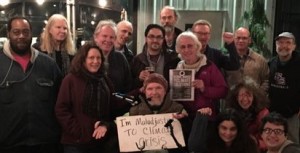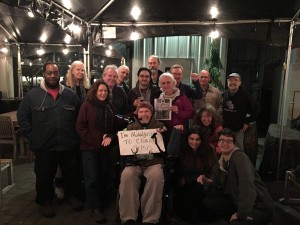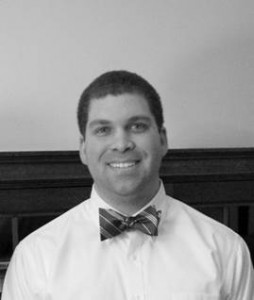Madness & Your Creative Maladjustment to Climate Silence

At the tasting for Ninkasi Brewery we spoke out about climate silence. So far no one from Ninkasi is talking with us but we will keep drinking their beer and asking them to speak up.
You would think that the whole world would be talking every day, all day about the threat to life itself on this planet due to decades of delay in addressing the climate crisis. Here in Eugene, Oregon at this point one would think our very progressive community would be discussing this topic all the time.
So why is there such silence?
Last week, our local weekly newspaper printed a little letter from me about the silence in our community regarding the climate crisis, a copy of the text is below.
Each of us individually can and must break the silence about climate chaos, or what I call climate silence.
Earlier this month the Paris climate meeting ended and we heard some mixed messages about the progress the resulted.
As the poet Dylan Thomas said:
“Do not go gentle into that good night,
… Rage, rage against the dying of the light.”
Below is my letter to the editor (12/17/15) summing up my own activism on our climate chaos:
OUR CHAMBER IS SILENT
COP 21 in Paris focused on what is most certain about climate change, such as the amount of sea-level rise. I am most concerned about uncertain disasters, such as positive runaway feedback loops, like methane release. We might hit a tipping point that could result in a chaotic Russian roulette with our planet. With such a worst-case scenario a possibility, our local response is far too silent.
For several years I have helped a campaign by the well-respected national group, 350.org. They ask local businesses to say that the U.S. Chamber of Commerce does not speak for them! Our local Eugene Area Chamber is actually independent from the U.S. Chamber, but unfortunately, after years of emails, visits and publicity, their leadership has stayed silent about global warming and refuses to put out a simple statement that the U.S. Chamber does not speak for them! Only about 56 local chambers, out of thousands, have spoken up.
Approaching friendly local businesses to talk about this issue is a good test of our nonviolence, compassion and civility. For example, several of us have communicated and visited with Ninkasi Brewing Company, whose Chief Financial Officer Nigel Francisco is the chair-elect for the Eugene Area Chamber. The Chamber’s website has a convenient business directory so that anyone can easily see if their favorite businesses are members. Eugene Weekly is a member.
Info about this is on my blog: davidwoaks.org. Click on the tab marked “Normalgeddon.”
David W. Oaks, Eugene
For more information about our trip to Ninkasi and the Eugene Area Chamber of Commerce, please see my blog entry about this with a link to how you can sign a petition.
Two of the leaders who went to the event at Ninkasi have commented about why this action is important:
“It’s really rare when the consequences of speaking up, or not, are this dire. So for the sake of our children and grandchildren, who will need a stable planet to live on, let’s speak up before it’s too late!” — Ron Unger, mental health counselor and activist, please see his blog here.
Read More




